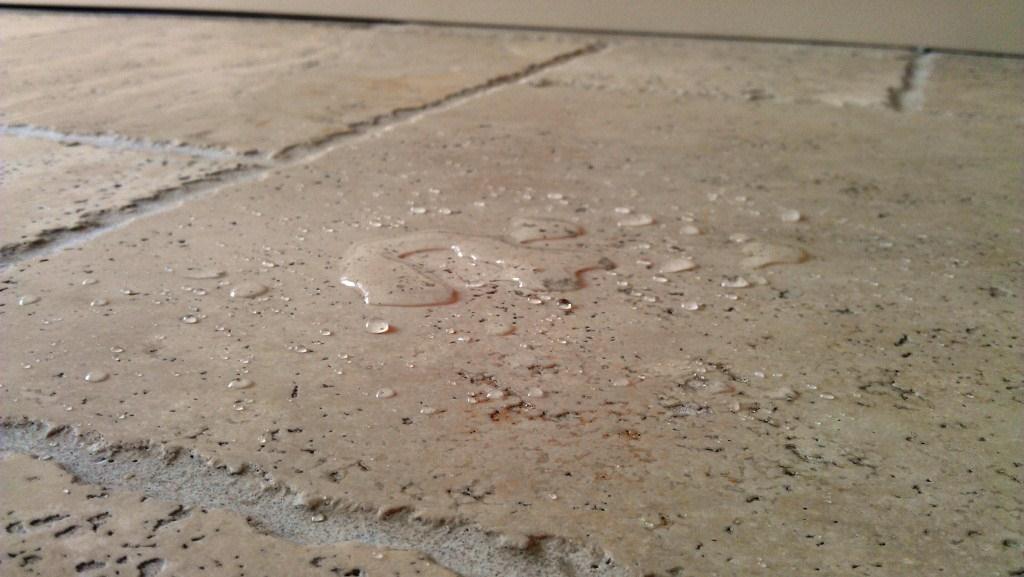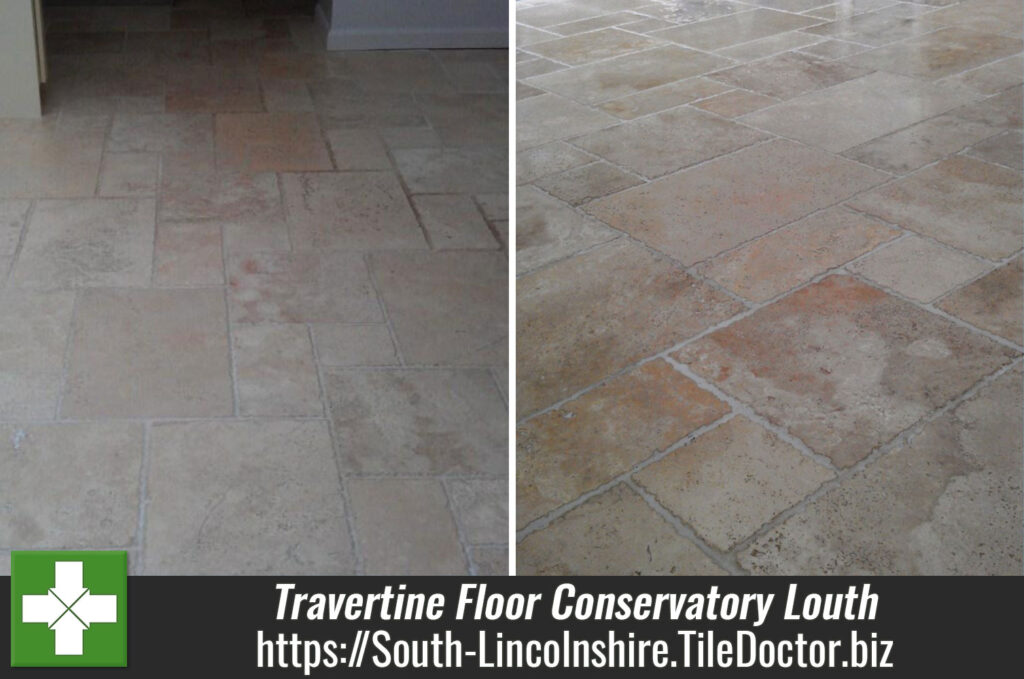These photographs are of a the Travertine tiled floor installed in a conservatory at a house in the historic town of Louth in Lincolnshire. The travertine was starting to dull and the grout was in need of a good clean so we were asked to maintain it.

Cleaning Travertine Tiles
Hard stone tiles such as Travertine and Marble etc. need to be polished with a set of Burnishing pads however before you start that process it’s necessary to remove any surface dirt from the floor first, this will ensure any grit that could get trapped in the burnishing pads and scratch the floor is removed first. With this in mind we washed the floor using a mild dilution of Tile Doctor Pro-Clean, this was also a good opportunity to get a stiff brush into the grout lines and give them a good scrub. We washed the floor down with clean water using a wet vacuum to remove the water from the floor before moving onto the next step.

Polishing and Sealing Travertine Floor Tiles
The floor was then re-polished using a set of 17” Burnishing pads fitted to our weighted polishing machine; the pads are diamond encrusted and you start with the coarser Red pad designed to remove sealers before moving on to the White, Yellow and finally Green polishing pad to achieve a high shine finish.
 The last step was to seal the floor which we did using two coats of Tile Doctor Colour Grow which is colour intensifying sealer that will provide on-going durable surface protection as well as enhancing the natural colours in the Travertine tile.
The last step was to seal the floor which we did using two coats of Tile Doctor Colour Grow which is colour intensifying sealer that will provide on-going durable surface protection as well as enhancing the natural colours in the Travertine tile.
 The last photograph shows the effectiveness of the sealer on the surface of the tile, without a sealer the water would have soaked into the travertine, with a sealer it bubbles on the surface allowing spillages to be removed easily before they have chance to stain the stone.
The last photograph shows the effectiveness of the sealer on the surface of the tile, without a sealer the water would have soaked into the travertine, with a sealer it bubbles on the surface allowing spillages to be removed easily before they have chance to stain the stone.

